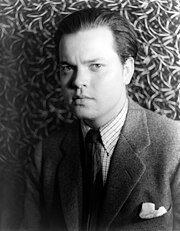
I have from time to tie opined here about the philosophy of humor. What does it mean for something (say, a brief story with an unexpected reversal at the end) to be funny?
Today I'll simply offer a test case for your consideration. Can we agree that this is funny, then worry about why?
The Simpsons a few years back did a Halloween episode set in the 1930s. The town of Springfield was ripped apart by panicked mobs after a radio program put together by a young Orson Welles that presented fake news reports of a Martian invasion.
The next morning, Orson Welles is on his way out of town. He is met by the police chief who has just been surveying the damage done by the riots. This dialog ensures:
Chief Wiggum: Why shouldn't I punch you in the nose, bud?!
Orson Wells: (muttering to himself), Nose bud? Hmmmm.
Is that funny?
Comments
Post a Comment